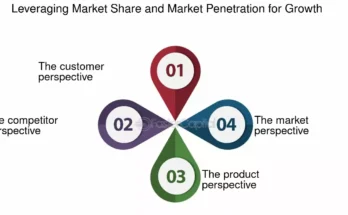Scaling a business requires more than just financial investment and market strategy—it demands strong, effective leadership that can guide a company through the challenges of growth. Leaders play a critical role in ensuring that the business not only expands but does so sustainably and strategically. Successful leadership in scaling businesses involves a combination of visionary thinking, operational excellence, and the ability to adapt to rapidly changing conditions.
In this article, we will explore the essential traits and strategies that leaders must adopt to scale a business effectively while maintaining stability and fostering innovation.
Key Leadership Traits for Scaling Businesses
- Visionary Thinking
A strong leader needs to have a clear vision of where they want the business to go. This vision provides direction and sets long-term goals for the entire organization. Leaders must be able to articulate this vision to their teams, investors, and other stakeholders, inspiring them to contribute to the company’s growth.
Visionary thinking also involves recognizing new opportunities in the market and understanding how to leverage the company’s strengths to take advantage of them. This trait helps ensure that scaling efforts are aligned with the company’s mission and market demands.
- Adaptability
In the fast-paced environment of scaling a business, leaders must be highly adaptable. Growth inevitably brings new challenges, and the ability to pivot and adjust strategies in response to unforeseen obstacles is crucial. Whether it’s responding to market shifts, technology changes, or internal pressures, leaders who embrace flexibility will navigate their businesses through uncertainty.
Adaptable leaders are open to innovation and experimentation. They encourage a culture of continuous improvement, which allows the organization to test new ideas and refine its approach as it scales.
- Strong Communication Skills
Clear and consistent communication is vital for any leader, but it becomes even more important during periods of rapid growth. As a company scales, teams often become larger and more dispersed, making it essential for leaders to effectively communicate the company’s goals, expectations, and changes.
Strong leaders establish open lines of communication across all levels of the organization. This fosters transparency and ensures that every team member is aligned with the company’s objectives. It also helps leaders gain valuable feedback from employees, which can be used to adjust strategies and improve operations.
- Delegation and Trust
One of the key challenges leaders face when scaling a business is learning how to delegate effectively. As the company grows, leaders must shift from being involved in day-to-day operations to focusing on higher-level strategy. This requires building a strong leadership team that can take ownership of different functions within the company.
Trusting team members to manage their areas of responsibility allows leaders to focus on driving the overall vision and strategy. Leaders who delegate well empower their teams, fostering a culture of autonomy and accountability, which is critical for a scalable business.
- Data-Driven Decision Making
Effective leaders in scaling businesses rely on data to make informed decisions. Growth requires constant evaluation of what’s working and what’s not, and data provides the insights necessary to optimize processes, improve efficiency, and identify new opportunities.
By using key performance indicators (KPIs), customer analytics, and financial data, leaders can make evidence-based decisions that align with the company’s growth objectives. Data-driven leaders also encourage a culture of analytics within the organization, ensuring that every department is using metrics to guide their decisions.
- Financial Acumen
Scaling a business often requires significant financial resources, and leaders must have a strong understanding of financial management to ensure the company’s growth is sustainable. This includes managing cash flow, securing funding, controlling costs, and allocating resources efficiently.
Leaders need to work closely with financial teams to forecast growth scenarios, manage budgets, and ensure that the company is financially prepared for the challenges of scaling. A leader’s financial acumen also helps in making strategic investments, such as hiring key talent or investing in technology that will support long-term growth.
Key Strategies for Leadership in Scaling
- Building a Scalable Infrastructure
A successful scale-up requires systems and processes that can handle increased demand without compromising efficiency or quality. Leaders must prioritize building a scalable infrastructure early in the growth phase, ensuring that the company’s operations, technology, and workforce can expand smoothly as the business grows.
This might involve implementing cloud-based technology, automating workflows, or developing a robust supply chain. Leaders should also ensure that the company’s culture and organizational structure are scalable, with clear roles and responsibilities as new employees and departments are added.
- Fostering a Culture of Innovation
Innovation is key to staying competitive as a business scales. Leaders must encourage a culture where creativity and new ideas are valued. This not only drives product and service development but also helps in optimizing operations and improving customer experiences.
To foster innovation, leaders can create environments where employees feel safe to experiment, take risks, and learn from failures. Rewarding innovative thinking and making it part of the company’s DNA ensures that the organization remains agile and forward-thinking as it scales.
- Investing in Talent and Leadership Development
As the business grows, so too must its leadership. Leaders must invest in talent development to ensure that their teams have the skills and knowledge needed to scale the business effectively. This includes both leadership development programs and specialized training for employees at all levels.
By nurturing future leaders within the organization, businesses can ensure continuity, maintain their culture, and foster loyalty among employees. Strong internal leadership allows the company to grow sustainably, as teams are equipped to handle the challenges that come with scaling.
- Maintaining Focus on Customer Experience
While scaling operations, it’s easy to lose sight of the customer. However, a customer-centric approach is vital for sustained growth. Leaders must ensure that the company continues to prioritize the customer experience, even as it expands into new markets or introduces new products.
Leaders can achieve this by continuously gathering customer feedback, tracking customer satisfaction metrics, and making adjustments to the product or service based on customer needs. A focus on customer experience helps to retain existing customers, attract new ones, and build a strong brand reputation.
- Strategic Partnerships and Collaborations
As businesses scale, strategic partnerships can play a key role in accelerating growth. Leaders who seek out partnerships with other companies, suppliers, or organizations can gain access to new resources, technologies, and markets. Collaborations can also help share risks and costs, making scaling more manageable.
Leaders must carefully assess potential partners, ensuring that their values and objectives align with the company’s long-term vision. Successful partnerships can enhance operational efficiency, expand market reach, and introduce innovative solutions to the business.
Conclusion
Leadership is the cornerstone of scaling a business successfully. Visionary thinking, adaptability, strong communication, and data-driven decision-making are essential traits for leaders navigating the complexities of growth. By focusing on building a scalable infrastructure, fostering innovation, investing in talent, and maintaining a customer-centric approach, leaders can ensure their businesses grow sustainably while staying competitive in dynamic markets.



